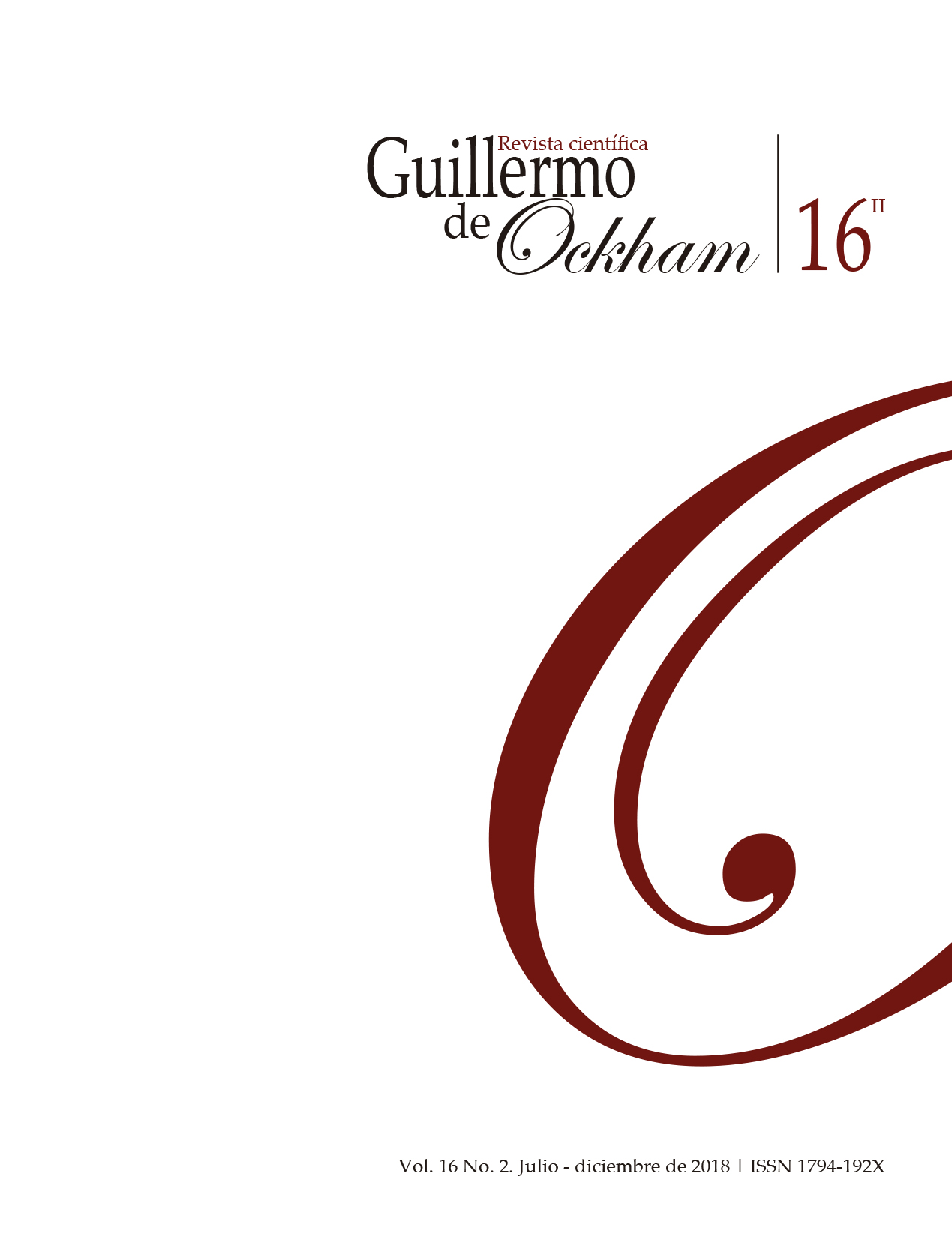The Revista Guillermo de Ockham provides an immediate and open access to its content, based on the principle of offering the public a free access to investigations to provide a global interchange of knowledge.
Unless otherwise established, the contents of this journal has a license with Creative Commons Attribution-NonCommercial-NoDerivatives 4.0 International (CC BY-NC-ND 4.0) http://creativecommons.org/licenses/by-nc-nd/4.0/
- Attribution: You must give appropriate credit, provide a link to the license, and indicate if changes were made. You may do so in any reasonable manner, but not in any way that suggests the licensor endorses you or your use.
- NonCommercial: You may not use the material for commercial purposes.
- NoDerivatives: If you remix, transform, or build upon the material, you may not distribute the modified material.
- No additional restrictions: You may not apply legal terms or technological measures that legally restrict others from doing anything the license permits.
Abstract
This paper is devoted to analyse the problem of animals in Ortega y Gasset and the mature Wittgenstein philosophies. The main conclusion is we should prefer the approach of Wittgenstein because it affords a discontinuous continuity picture -a degree continuity- between animals and human beings that explains better our epistemic and moral attributions to animals.
References
J. Ortega y Gasset, La caza y los toros, Madrid, Revista de Occidente, 1960.
L. Wittgenstein, Lectures and Conversations on Aesthetics, Psychology and Religious Belief, Oxford, Basil Blackwell, 1966.
L. Wittgenstein, Philosophical Investigations, Oxford, Wiley Blackwell, 1966.
L. Wittgenstein, Zettel, Oxford, Basil Blackwell, 1967.
L. Wittgenstein, On Certainty, Oxford, Basil Blackwell, 1969.
































